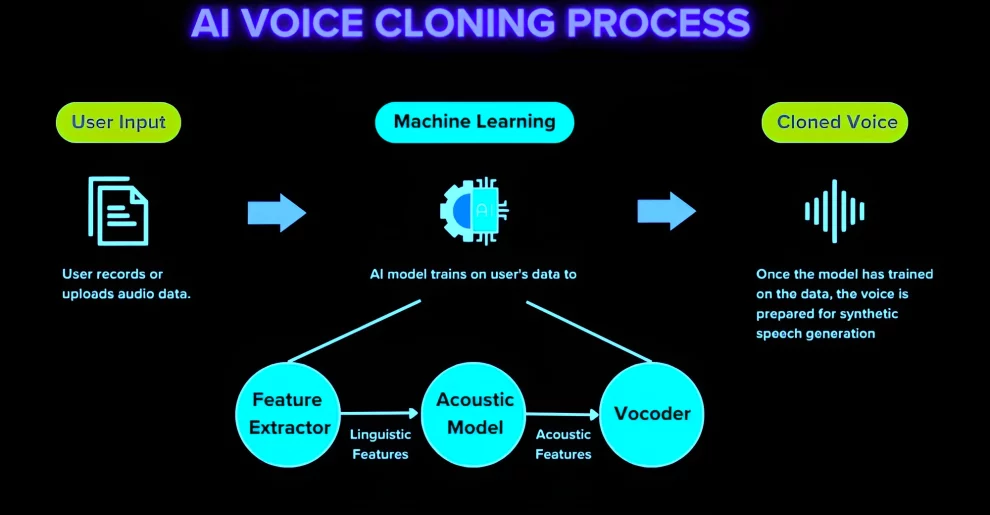Imagine hearing your own voice, uttering words you never said, promoting ideas you vehemently oppose. This unsettling scenario is increasingly possible thanks to the rise of AI-powered voice cloning technology. While it holds potential for creative applications and accessibility tools, its ethical implications demand immediate and serious consideration. Today, we dive into the world of voice cloning, exploring its capabilities, its impact on trust in the digital landscape, and the crucial steps needed to mitigate the potential for misinformation and manipulation.
The Art of Mimicry: How Does AI Do It?
Voice cloning utilizes a complex set of algorithms trained on vast datasets of audio recordings. These algorithms learn the nuances of a specific voice, its pitch, cadence, and unique inflections. Once trained, the AI can then synthesize new audio, mimicking the target voice with varying degrees of realism. The technology can manipulate existing recordings, creating deepfakes where words are altered or completely fabricated. The potential for misuse is significant, blurring the lines between reality and fabrication.
A Symphony of Untruths: The Threat to Trust
The ability to convincingly impersonate any voice can have devastating consequences for individual and societal trust. Imagine political campaigns using cloned voices of opponents to spread disinformation. Think of celebrities being blackmailed with fabricated voice recordings. The very bedrock of trust in communication, in the authenticity of voices we hear, could crumble under the weight of this technology.
The Echoes of Doubt: Case Studies in Misinformation
The threat is not merely hypothetical. In 2018, a voice clone of Barack Obama was used to deliver a fake speech promoting cryptocurrency. More recently, AI-generated voiceovers have been used to spread misleading narratives in political contexts. These incidents highlight the vulnerability of society to manipulated audio and the potential for widespread misinformation.
Beyond the Fake News: Broader Concerns
The ramifications extend beyond politics. Imagine impersonating someone’s voice to gain unauthorized access to financial accounts or commit fraud. Consider the potential for emotional manipulation, using cloned voices of loved ones to exploit vulnerabilities. The very essence of online interactions, where trust is often built on the authenticity of voices, could be irrevocably damaged.
A Call to Action: Mitigating the Risks
Addressing this challenge requires a multifaceted approach. Here are some crucial steps:
- Transparency and Disclosure: Developers and users of voice cloning technology must be transparent about its use and potential for manipulation.
- Technical Safeguards: Implementing robust detection and authentication mechanisms can help identify and flag manipulated audio.
- Media Literacy Education: Educating the public on the potential for deepfakes and how to critically evaluate audio information is essential.
- Legal Frameworks: Regulatory frameworks need to be established to address the misuse of voice cloning technology and hold perpetrators accountable.
- Ethical Codes of Conduct: Developers and users must adhere to ethical guidelines that prioritize transparency, accountability, and respect for individual privacy.
The Future of Voices: A Delicate Balance
AI-powered voice cloning is a powerful technology with immense potential. However, its ability to manipulate trust and spread misinformation necessitates cautious and proactive measures. By acknowledging the risks, fostering transparency, and implementing safeguards, we can harness this technology’s potential for good while mitigating its harmful applications. Let us ensure that the future of voices, amplified by AI, remains rooted in authenticity and fosters genuine human connection in the digital age.
















Add Comment